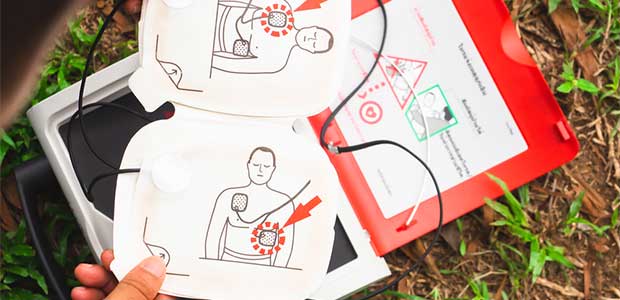
When Minutes Matter: CPR and AEDs at Work
Training is key to managing a cardiac event at work.
Too often and for too many employees, mandatory CPR/AED training is seen as an inconvenience that disrupts a busy workday for an emergency that may never occur.
It’s easy to adopt the “it-can’t-happen-here” mentality, but consider the numbers.
Nearly 10,000 people—more than 15 percent of workplace fatalities—suffer cardiac arrest on the job annually. It’s most often seen in industries where workers may be exposed to electrocution, lightning strikes, low oxygen environments or even overexertion.
OSHA estimates that having an automated external defibrillator (AED) available and an average time to defibrillation of three to four minutes can lead to a 60 percent increase in survival rates.
An observational study from the Swedish Registry of Cardiopulmonary Resuscitation published in Resuscitation Plus supports the OSHA data, finding that out-of-hospital cardiac arrest occurring at workplaces and crowded public places displayed the highest probability of survival from out-of-hospital cardiac arrest (OHCA).
Further, after finding better outcomes for OHCA cases that occur in the workplace, a 2015 meta-analysis published in the journal Resuscitation recommended that workplace safety requirements should include steps to address these types of major events.
Training is key to managing a cardiac event at work, where survival often lies in the hands of colleagues who can immediately start CPR and operate an AED.
Ensuring Employees are Ready to Act
Preparation and small details count when a life is at stake. The American Red Cross last year introduced “active learning,” where students take turns simulating the roles of student, coach and observer in CPR/AED skills sessions. This “peer-to-peer” format fosters a highly active learning environment that furthers memory retention and better prepares students for real world, team response situations.
“You are not responding to an emergency alone, so we realize we need to learn how to integrate that,” said Owen Long, then-president of Sertified, LLC, a Red Cross training provider.
This article originally appeared in the September 1, 2022 issue of Occupational Health & Safety.